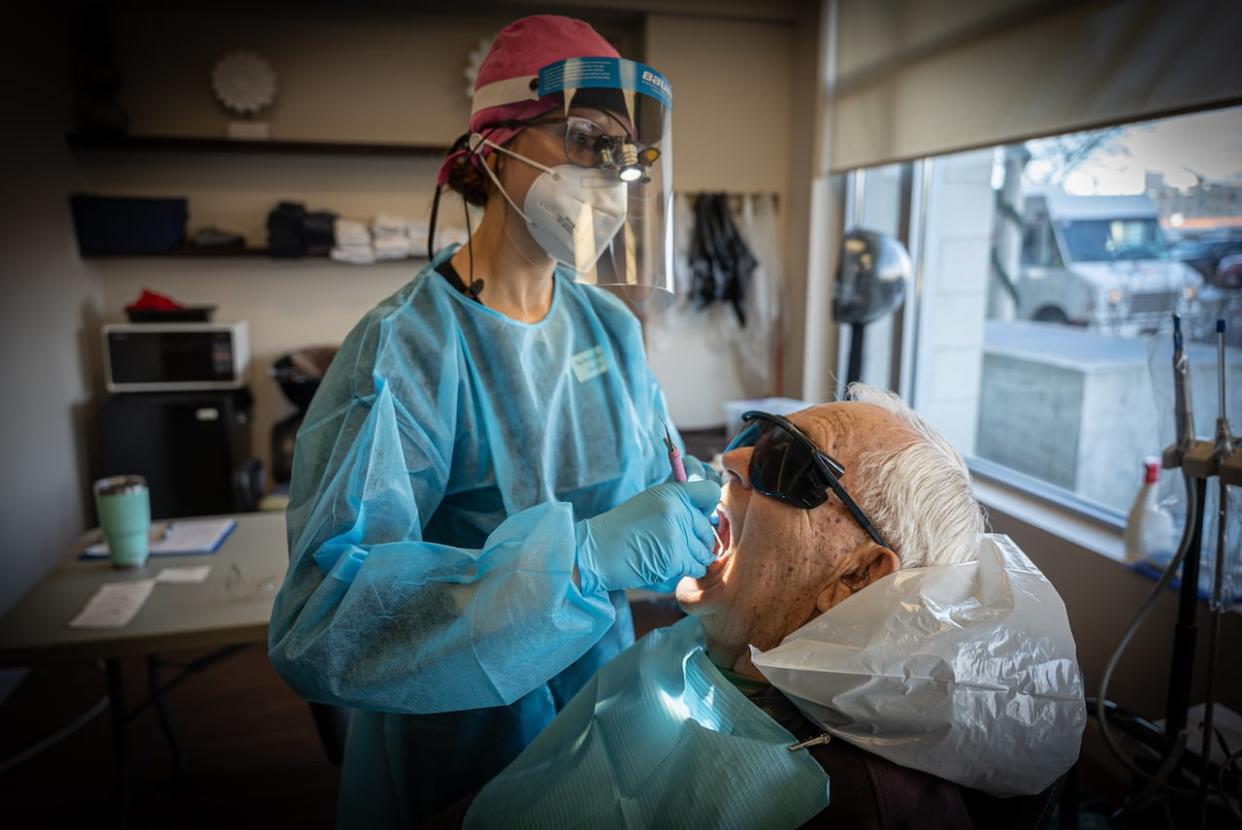Thousands of Nova Scotians could benefit from federal dental plan, if only they can find a dentist

It took calls to three dentists before 84-year-old Len Giffen could find one that was both participating in the new Canadian Dental Care Plan (CDCP) and accepting new patients.
Giffen, who lives in Milford, N.S., found out that although he was eligible for the plan, his dentist hadn't enrolled. And according to the Nova Scotia Dental Association, a non-profit that represents more than 500 dentists in the province, nearly all of them have yet to do so.
The association's president, Dr. Juli Waterbury, said Tuesday that only four dentists in the province had signed up. She's not surprised by that number, saying there are concerns with how the program is designed.
"They are asking providers to enrol, to sign a contract with the government in order to provide care," Waterbury said. "This does not follow along with any other insurance plan or any other government-run program that we work with."
She added most dentists in Nova Scotia are facing staffing shortages, with some already not having the capacity to take on new patients. Waterbury said the plan would bring additional administrative burden for dental practices.
Giffen had no dental insurance before the program. His new coverage under the federal plan means he no longer has to worry about a large expense — a relief as he could soon need more than $1,000 in dental work.
This is a "major assistance to seniors," said Giffen, who ultimately found a dentist in Halifax who was registered in the program and could take him on.
"I just can't see why the dentists are not interested in making sure that ... seniors get the coverage, even if it might involve a wee little bit more paperwork."
Patients enrolled in the CDCP can find participating dentists online through Sun Life, which is managing the program for the federal government. Giffen said he spoke with clinics in Stewiacke and Eastern Passage whose dentists had signed up for the program. One wasn't accepting new patients and the other clinic's dentist was on leave.
Health Canada has not said exactly how many oral health care providers have registered for the CDCP across Canada since applications opened March 11, only that "thousands" have signed on.
The plan's coverage of routine dentistry costs starts in May. Registrations have begun with seniors. Next year, the CDCP will expand to all uninsured Canadian residents with household incomes under $90,000 per year.
Giffen is one of the potentially tens of thousands of people in Nova Scotia that the plan could help, if there were enough dentists signed up. Recently released data from Statistics Canada shows that in 2022, about 57 per cent of people age 65 or older in the province didn't have dental insurance, totalling more than 122,000 seniors.
Overall, about 30 per cent of people in Nova Scotia age 12 or older didn't have dental insurance. And those with the lowest net family incomes — who the CDCP targets to help — were less likely to be covered by an insurance plan. More than half the people with the lowest 20 per cent of net family income did not have dental insurance.
Dr. Brandon Doucet is a Nova Scotia dentist who works primarily at the Springhill Institution and has enrolled in the CDCP. Doucet, also the founder of the advocacy group Coalition for Dentalcare, believes everyone deserves access to treatment.
Doucet said he thinks the administrative burden of the plan won't be higher than for existing private insurance plans.
"You already have to fill out some paperwork on occasion," he said.
Beginning in May, seniors aged 65 to 69 will be able to apply for the plan. Applications for older seniors are already open. That eligible group will be followed in June by adults with a valid disability tax credit certificate, and children under 18.
MORE TOP STORIES

